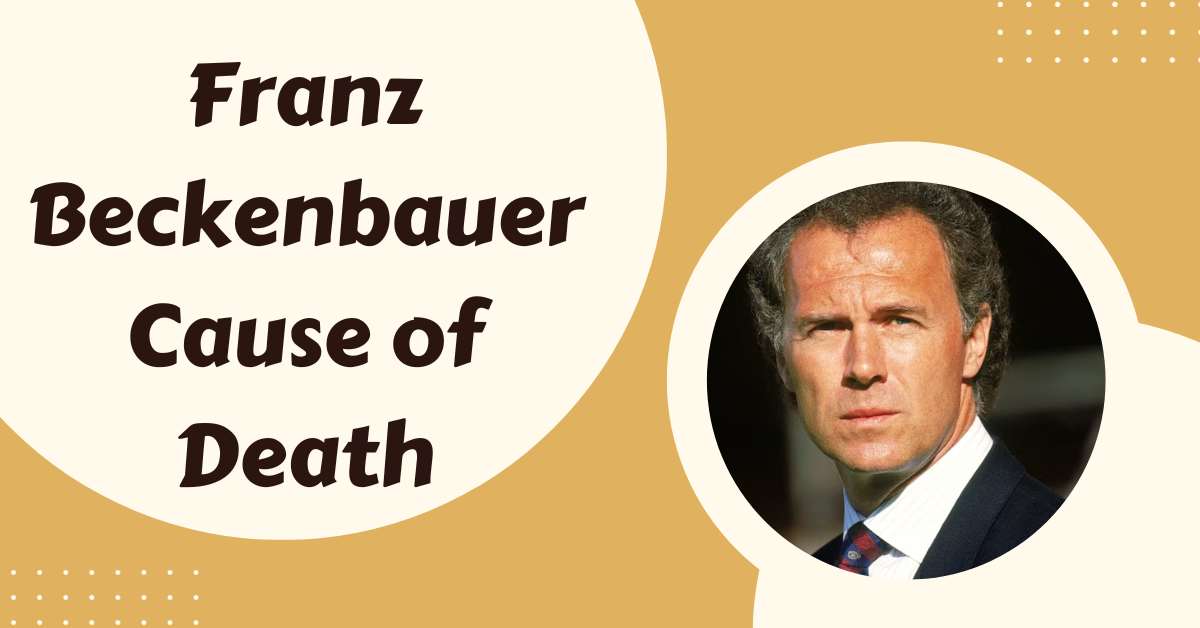Franz Anton Beckenbauer was a German professional football player and manager who lived from September 11, 1945, to January 7, 2024 (pronounced in German). He is considered one of the best football players and managers in history, going by the nickname “Der Kaiser” (“The Emperor”).
Although he began his career as a midfielder, this adaptable athlete gained recognition as a center defense. He is one of nine players who have won the FIFA World Cup, the European Champions Cup, and the Ballon d’Or, and he has achieved success at both the club and international levels.
Franz Beckenbauer Cause of Death
According to the German Football Federation (DFB), soccer legend Franz Beckenbauer, who is regarded as one of the game’s best players ever, passed away at the age of 78.
The DFB announced that Beckenbauer had died on Sunday in Munich, describing him as “one of the best players this sport has seen and a natural leader.” The cause of death is yet unknown.
As a player in 1974 and as head coach in 1990, Beckenbauer guided West Germany to two World Cup victories. During his 582 appearances as a player, he won five league crowns and three European Cups with German Bundesliga team Bayern Munich from 1965 to 1977.
“The Bundesliga family is devastated to learn of the death of Franz Beckenbauer. A true icon, then, now, and always. RIP, Der Kaiser,” the Bundesliga wrote on X, formerly known as Twitter, on Monday:
The Bundesliga family is devastated to learn of the death of Franz Beckenbauer. A true icon, then, now, and always. RIP, Der Kaiser. 👑🕊 pic.twitter.com/zE2CcggVNd
— Bundesliga English (@Bundesliga_EN) January 8, 2024
Known by his nickname “Der Kaiser” (“The Emperor”), Beckenbauer changed the game forever by becoming a dominant offensive defender and taking over the sweeper position. According to the federation, he participated in 103 international games for Germany, captaining the squad 50 times. In addition, Beckenbauer led his nation’s quest to host the World Cup in 2006.
“‘Der Kaiser’ was an extraordinary player, successful coach and popular pundit who shaped German football like no other,” European soccer governing body UEFA wrote on X. At the same time, the Premier League said that he was “as elegant as he was dominant.”
Franz Beckenbauer, one of European football’s greatest sons, has passed away aged 78.
“Der Kaiser” was an extraordinary player, successful coach and popular pundit who shaped German football like no other. pic.twitter.com/rW12ArNnNh
— UEFA (@UEFA) January 8, 2024
Being the only defender ever to win the Ballon d’Or twice, Beckenbauer was named the finest player in the men’s game in both 1972 and 1976. Additionally, he is one of just three persons to have won a World Cup in both management and play.
In a statement, Bayern said that the world is “suddenly darker, quieter, poorer” following Beckenbauer’s death, adding that, without him, “FC Bayern would never have become the club that it is today.”
If you want to check out other celebrity’s cause of death, then you can read these articles:
- Naomi Judd Cause of Death: What Exactly Happened To Her?
- Samboy Lim Cause of Death: His Journey to the Hoops in Remembrance!
Franz Beckenbauer’s Club Career
On June 6, 1964, Beckenbauer made his Bayern debut on the left wing against FC St. Pauli in a Bundesliga promotion play-off match. His squad won the league in 1964–65, his first season in the Regionalliga Süd (“Regional League South,” then the second level in Germany), and was later promoted to the Bundesliga.
Bayern quickly established themselves as a dominant team in the newly formed German league, taking home the German Cup in 1966–1967 and the Cup Winners’ Cup in 1967. For the 1968–69 campaign, Beckenbauer assumed the role of team captain, helping his team win its first league championship.
Around this time, he started experimenting with the sweeper (libero) function. He eventually transformed the role into a new shape and is regarded as the most influential player in the aggressive sweeper game.
Bayern Munich won three straight league titles from 1972 to 1974 under Beckenbauer’s leadership. The team also won three successive European Cups (1974–1976), earning the right to keep the trophy forever.
